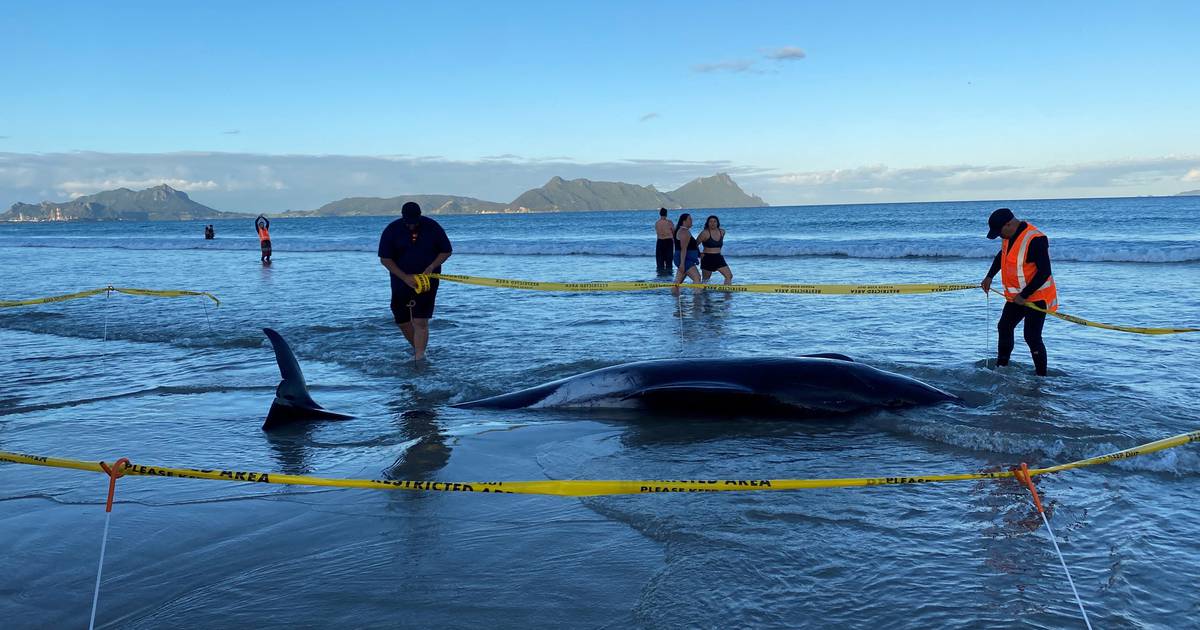On Monday, New Zealand scientists began dissecting a whale that is considered the rarest in the world and belongs to a species that is so inaccessible that only seven specimens have been identified so far. The remains of a whale about five meters long were discovered this summer on the beach where it ran aground near the city of Dunedin, offering scientists the opportunity to study this deep-sea mammal that has never been seen alive. The whale was pulled from the beach with a special winch in July and since then its corpse has been placed in a special freezer. Cetacean expert Anton van Helden said that for the first time scientists have the opportunity to dissect a complete specimen of a shovel-toothed whale, which belongs to the beaked whale family.
“This is an extraordinary and globally important opportunity,” he said.
A one-week dissection will help fill in the gaps in knowledge about the whale’s behavior, its diet, and even its basic anatomy.
“Beaked whales are the most enigmatic group of large mammals on the planet because they live at great depths,” Van Helden said.
“This species is the rarest of the rare. It is only the seventh known specimen from anywhere in the world, and this is the first opportunity for us to perform such a detailed dissection.”
The New Zealand Department of Conservation has confirmed that the shovel-toothed whale is “the rarest species of whale in the world”.
It was first described in 1874 on the basis of a lower jaw and two teeth found on Chatham Island on the east coast of New Zealand.
Thanks to that sample, together with the remains of the skeleton of two more specimens found in New Zealand and Chile, scientists were able to confirm that the word just about this species.
Given that few specimens have been found so far and that the shovel-toothed whale has not been seen alive, the mammal is classified in the “data deficient” category, which indicates a conservation status.
Scientists consider that data on a species is deficient when they do not have enough information to determine how many there are and whether they are endangered. Very often this means that it is not even clear where exactly the species lives or how often it can be found.
The shovel-toothed whale belongs to the family of beaked whales (Ziphiidae), which consists of about 20 species. They are one of the least known families of large mammals, which can be attributed to their extreme rarity, solitary behavior and deep sea habitat in the South Pacific that they rarely leave. These whales, which usually swim fast and deep, rarely throw water to the surface, which makes them difficult to spot.
Each potential discovery, like this latest one in New Zealand, gives scientists the opportunity to discover valuable new information about these mysterious animals.
